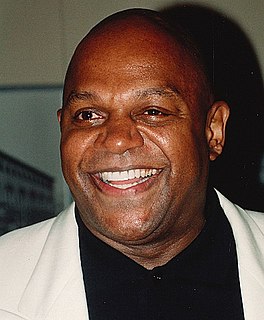A Quote by Antony Johnston
'Daredevil: Season One' is kind of in-between. On the one hand, sure, it's a graphic novel. But on the other, it's beholden to existing continuity, and we're still telling the story in issue-length chapters. So it's not that different to writing a miniseries, and I've done plenty of those.
Related Quotes
The graphic novel? I love comics and so, yes. I don't think we talked about that. We weren't influenced necessarily by graphic novels but we certainly, once the screenplay was done, we talked about the idea that you could continue, you could tell back story, you could do things in sort of a graphic novel world just because we kind of like that world.
While writing 'Bhavesh,' I pretty much chewed up every single graphic novel I could get my hands on, so all the way from the entire 'Batman' series, Frank Miller's 'Batman,' Ed Brubaker's 'Batman,' Scott Snyder's 'Batman,' all the way through 'Daredevil' to '100 Bullets,' through so many other graphic novels.
Once you play with these scenes and you're outlining it, again and again, and telling each other the narrative, and telling it to people you know, trying to make sure that the mathematics of the story work, you feel that those are in place, and the actual writing and final draft doesn't take as long.
Cartooning is completely different from other media: it is closely related to film and prose, other narrative forms, but the skills needed to realize a story are very different, and include not only drawing and writing dialogue and narration, but graphic design and the ability to depict time passing visually. It's a whole suite of skills that has to go into making a comics page, skills that are quite distinct from those that go into writing a page of prose, or making a film.
I was wrapping up my stint on 'Daredevil' co-writing with Andy Diggle during the Shadowland story, when Marvel asked if I was interested in doing something else with DD but a bit different. When they explained the purpose of the 'Season One' books, I was intrigued - I'm a big advocate of books for people new to the medium - and said yes.
The ‘experimental’ writer, then, is simply following the story’s commands to the best of his human ability. The writer is not the story, the story is the story. See? Sometimes this is very hard to accept and sometimes too easy. On the one hand, there’s the writer who can’t face his fate: that the telling of a story has nothing at all to do with him; on the other hand, there’s the one who faces it too well: that the telling of the story has nothing at all to do with him
The difference when I'm writing a story versus writing a joke is that writing a joke is so much more about the structure and it's less about the conversation. To me, the thing that I love about stand-up is the intimacy between performer and audience.To get it even more conversational was something that really appealed to me and that I really enjoyed doing. My early experiments with it, with just telling a story from my life on stage, it was so satisfying to do. And seemingly for the audience as well. It's a different thing, and it's a different feeling and a different vibe.




































